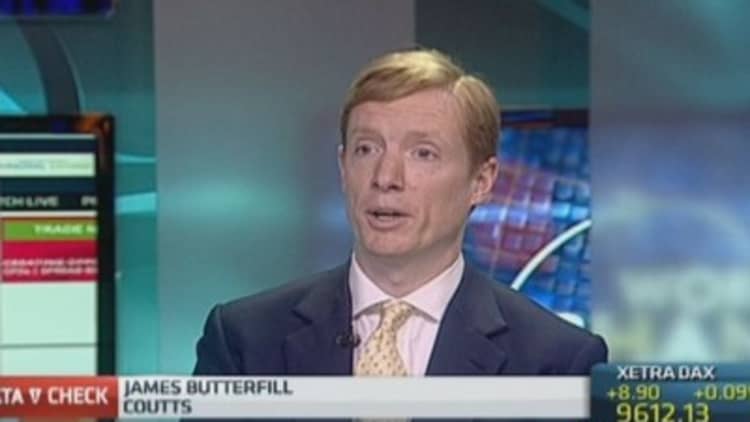Euro zone unemployment remained at 11.8 percent in March, unchanged since December, Eurostat said on Friday.
The data from Europe's official statistics body also showed the number of unemployed people in the euro zone area decreased by 22,000 between February and March. Unemployment was 316,000 lower in March than a year before.
Youth unemployment in the euro zone has dropped by 166,000 in the past year, with the unemployment rate for under 25-year-olds declining to 23.7 percent in March 2014 from 24 percent in March 2013.
This unemployment data came shortly after a different indicator for euro zone manufacturing activity. This showed manufacturing in the region's accelerated in April, showing a strong start to the second quarter of 2014, although France's performance slumped slightly as the country continued to lag behind a broadening recovery on the continent.
Manufacturing PMI (purchasing managers' index) for the region rose to 53.4 in April, according to Markit. This was up from 53.0 in March and slightly better than a flash estimate of 53.3. Any reading above 50 indicates sector expansion.

On Markit's PMI league table, Ireland remained at the top in April, as its rate of expansion hit a 38-month high. Growth in the sector also accelerated in Germany, Austria and Italy, with the latter logging a 36-month high. And Greece returned to manufacturing growth in April.
Factory expansion eased in France, Spain and the Netherlands, however. France's April reading slumped to 51.2 from 52.1, although it remained above the break-even level for a second month.
Read MoreEuro zone inflation rises, pressure remains on ECB
"The euro zone PMI paints a promising picture for the region's manufacturers at the start of the second quarter," Chris Williamson, chief economist at Markit, said in a release.
"Regardless of the divergent rates of growth, perhaps the best take-away from the April survey.is the news that all countries recorded PMI readings above the no change level of 50, which highlights how the recovery is becoming more broad-based and therefore hopefully more sustainable, as rising demand from each member state feeds growth in other countries."
David Lea, senior Europe analyst at Control Risks, told CNBC via email: "It's good news that the recovery appears to be settling in with a clear but gentle upward path in PMI. There will be concerns that France isn't keeping pace, and PMI usually moves along time ahead of indicators like unemployment and wages that illustrate a recovery being felt more widely."
Read MoreHow real is the euro zone recovery?

